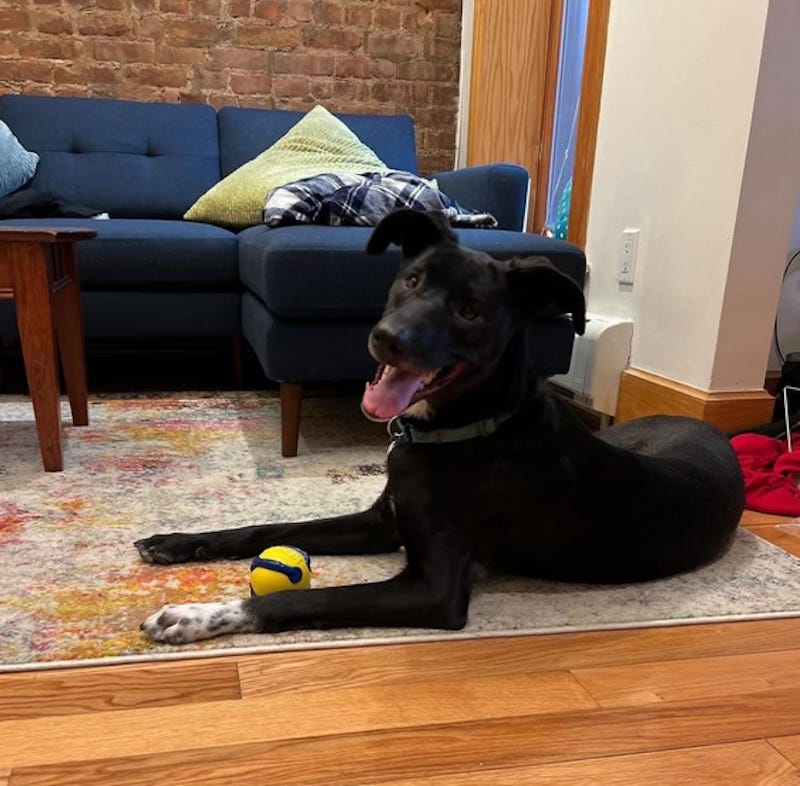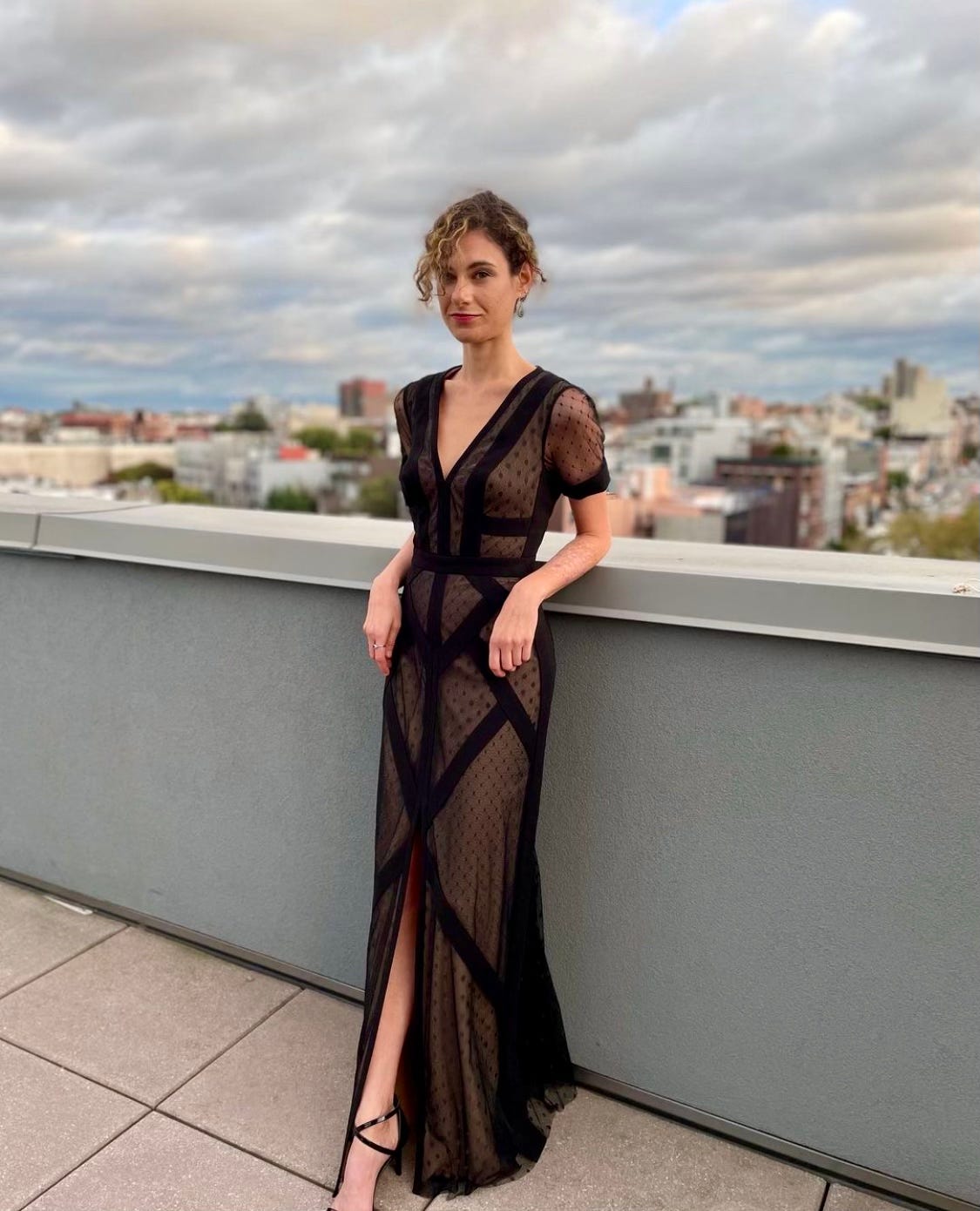Sonia Weiser's New Spin on Making Friends as an Adult
Plus, the journalist shares her advice for writers, brilliant tips for creating gallery walls, and her Park Slope favorites.
Hi, I’m Kelley MacDonald, and each week, I interview a fun Park Sloper about their life and favorite things to see, eat, and do around the neighborhood. If you'd like to read these interviews, please upgrade to paid. If you stick with a free subscription, you'll get my monthly emails, plus occasional free emails. Thank you so much for being here!
In August 2020, I subscribed to Opportunities of the Week, a newsletter packed with pitch calls and media industry insights. It’s curated by journalist Sonia Weiser, and tens of thousands of freelancers from all over the world rely on it to help them find work. “I started it at a time before everyone tried doing the same thing. I built up the brand, and now people know me and respect the amount of work I put into it — and the fact that I do it alone,” says Sonia.
Transparency around mental health, self-employment, and the increasingly unstable media industry is, in many ways, Sonia’s brand. “People respect how I share what the industry is looking like and what I'm going through in life. I think I've earned a lot of respect from subscribers on days where I'm like, Nope, I'm having a depressive episode so the newsletter will come out next week.” While the pressure to send an email that people use to earn a living has taken a toll on Sonia, the best thing to come out of the newsletter for her? “Being able to afford to live in Park Slope.”
Here, Sonia reveals her secrets to a great gallery wall, the book proposal she’s working on, and her new Fancy Adult Club™! Plus, she shares her Park Slope favorites, including a wine shop and thrift store.
Kelley MacDonald: Hi Sonia! It’s kind of surreal to be talking to you after seeing your name in my inbox for so long — and then to learn you live in Park Slope! How long have you lived here and what brought you to the neighborhood?
Sonia Weiser: I moved in December, so I’m brand new. I love being so close to the park now. My dog, Ivy, can run around. That was the main draw, having that for her. It’s so ridiculous; it’s like moving to a school district but for your dog! KM: [laughs] They are family members, so I get it. SW: The broker was like, This is such a good apartment for your dog. And I was like, I guess I'm happy with it too [laughs].
While you’re new to Park Slope, you moved to NYC from Lexington, MA to attend NYU for creative writing, journalism, and gender studies. Did you always want to be a writer?
NYU was my early decision. I got in, which was great because I didn't have to do anything else for the rest of the application process. That was a fantastic feeling for me and my ego [laughs].
I originally went to school for photojournalism, and I took one photography class my freshman year and was like, You know what, this crowd isn't for me. But creative writing was always something that my teachers told me I was good at, and I'm very much the kind of person where as soon as someone tells me I'm good at something I'll just keep pushing it as opposed to taking risks in any other genre of work. I’m like, If my first grade teacher said I'm good at creative writing then clearly this is my calling.
What were the early days of your writing career like?
[laughs] Well, technically, my first jobs were little writing gigs through TaskRabbit. One was I wrote clues for a sex game, which I did before ever having sex, so that was interesting. I see [the woman who made the game] on LinkedIn doing all sorts of super professional things now, and I'm like, Wait, weren’t you making a sex game?
After TaskRabbit, I was learning where to find calls for pitches, and I got a few gigs here and there. I got a gig with Paste writing about design. I submitted stuff to The Hairpin [RIP]. Then, I got a full-time job at Mental Floss that lasted three months. It was one of those jobs I applied for knowing I wouldn't really like it, and low and behold, I didn't like it. They ended up firing me after three months because I was a shitty employee. At the time, I was indignant that they fired me, but then, in retrospect, there was really nothing I was bringing to the table, so it was fine.
One good thing about working at Mental Floss was I had to turn out so much content that I ended up with a lot of clips that I could submit [when pitching]. That got me my piece in The Atlantic, and that one put me on the map. It was one of those pieces where you start with one editor, and a year later, they have you revise it entirely with a different editor. It was a good experience and made me feel better about the trajectory of my career and who I was as a writer.
Who were you as a writer before the Atlantic piece?
It was 2014/2015, and the personal essay was thriving. So, I was trying to pitch ideas about my eating disorder for women-centric sites. I hated myself for that. I didn't consider myself a writer because I didn't feel like I was doing journalism. It felt like complaining publicly or going to therapy publicly, and for not enough money. Once I made a conscious decision that I wouldn't share personal essays, that changed how I thought about myself and the kind of work I was producing. I became a more confident writer.
Something I always advise people now is to think about whether you're ready to write out these heavy topics because being intellectually ready to analyze them is very different than being emotionally ready to publish them. Being able to analyze the shit out of my emotions has always been a strong suit of mine, but being able to feel my feelings has not.
What topics do you like to write about now?
I was writing a lot about dating, but now I'm in a relationship, so I’ve tapped out of that genre. But I wrote a piece for the LA Times about romantic banter, and while interviewing people for the piece, I realized there was way more than I could contain in a 1000-word essay. So, I’m working on a book proposal right now that will combine cultural analysis, memoir, and research to understand banter. Looking at what makes banter romantic versus friendly; interrogating the things I've watched and read over the years.
In rom-coms, banter can be what signifies to the audience that characters are meant for each other. Whether it's a “When Harry Met Sally” or “You've Got Mail” situation, we all recognize the friend-to-lover or enemy-to-lover [plot]. This fast-paced dialogue in lieu of sex is a holdover from the 1930s when the Hays Code was enacted and they couldn't show sex in movies. They were substituting it with steamy dialogue; the dialogue was basically foreplay. That’s something I didn't know and found out in an interview.
So you’ve been living in Park Slope for only a few months, but you’re already the founder of the local Fancy Adult Club™! How did it start, and when is the first meetup?
Keep reading with a 7-day free trial
Subscribe to Park Slope Times to keep reading this post and get 7 days of free access to the full post archives.





